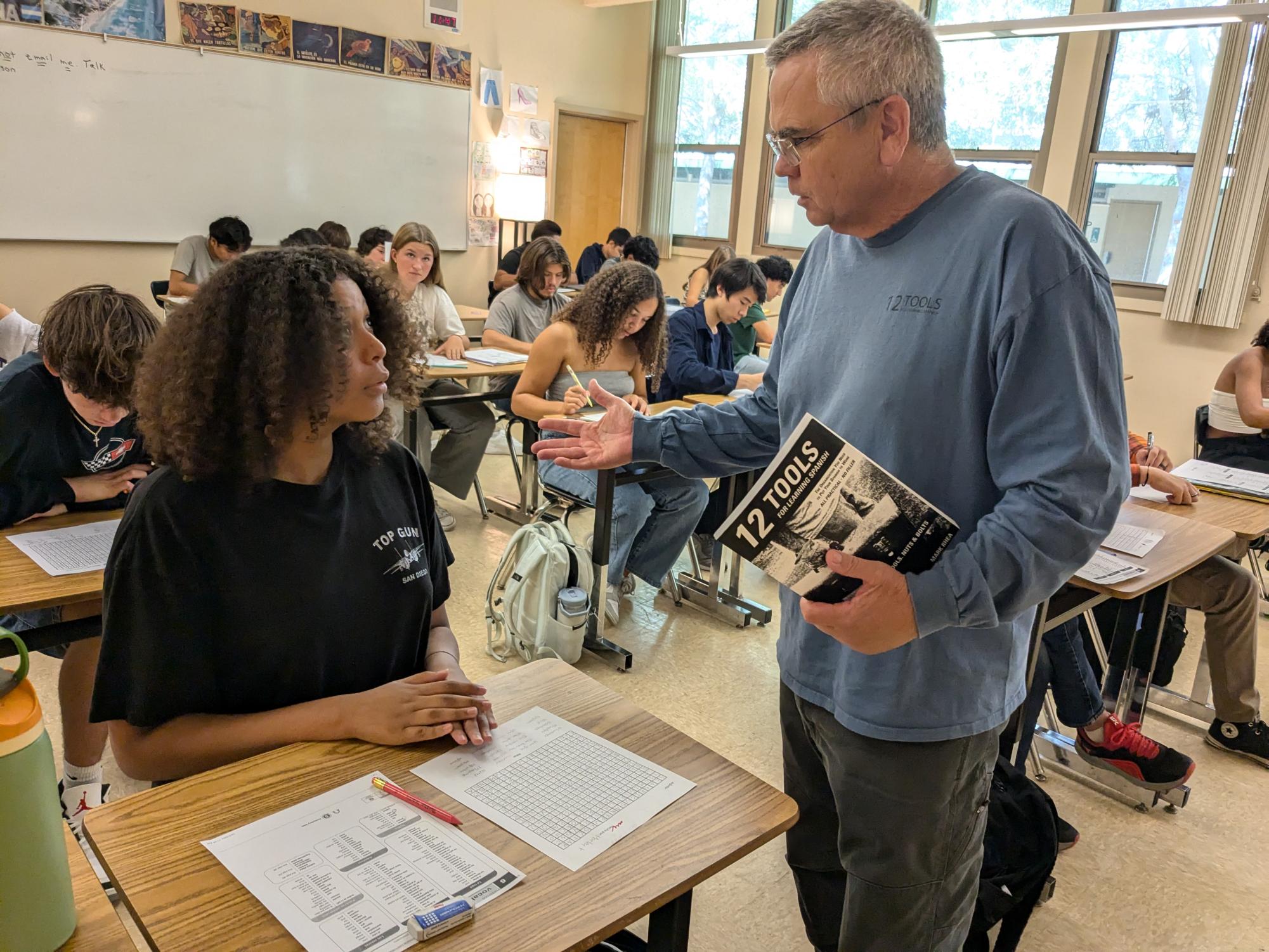Students go through a lot. You’ve heard the typical spiel– sports, clubs, AP and college classes– all of it more or less melts the time away. Before you know it, it’s midnight. And you are going to have a hard time going to sleep.
It’s weird (and sad) to think that a lot of students other than you have mirrored experiences. Everybody’s overworked from time to time. Everybody loses sleep now and then. And everybody has to struggle with the stress that comes from juggling– it’s just odd thinking that teachers struggle, too.
You’ve heard the typical spiel– a mortgage, one-point-five kids and a dog, a coffee addiction– all of it more or less melts the time away. Before you know it, the weekend’s over, and you’ve only graded one-third of the tests. Jokes aside, I know it can be hard to imagine, but teachers have it rough, too. But, at least, from personal experience, I know that a lot of them like what they do. So, I decided to see if, despite all the stress it might cause, teachers think it’s all worth it.
Before we begin, you need to know that I’m keeping the teachers’ identities anonymous. I know you most likely want to know who said what, but this makes it so that the teachers can say whatever they want (and not lose their jobs). Speaking of jobs, one of the first questions I asked was, if they couldn’t be teachers, what other jobs our teachers would have– and the responses were fairly interesting.
“Either a Starbucks barista or flight attendant,” one said. Another informed me about having some previous religious vocational training, and that before becoming a teacher, they were thinking about becoming a pastor. One had thoughts of selling baked goods. Being a surfing instructor appealed to one teacher, while another leaned much more toward Jazzercise. The differing and varied responses surprised me, as there didn’t seem to be any pattern– even teachers of the same subject type had stark differences in their job choices. However, they all shared fairly common views in regards to our school. As a journalist, I made it a point to not ask any leading questions. I asked each of them directly whether or not they liked their jobs, and thankfully, they all said yes.
“If I didn’t like where I was working,” an interviewee put it bluntly, “I would have left and gone somewhere else. But I actually really like my coworkers, I really like the students, like the freedom I feel like I have– and the impact I feel like I could potentially have.”
One particular English teacher had a similar reason for coming to work every day. They told me that they felt very fortunate and grateful to be a teacher, and one of the biggest reasons for that was the “feeling that your work is meaningful. You’re providing support for young people– shaping the ways that they interact and communicate with one another. I love that idea.”
“I do,” a staff member said, “and I like the support from every, every direction– administration, for the most part, gives really, really good support.”
Support from superiors– which, in this case, would be administration– as well as wages, were another topic I figured I’d hear some complaints about. Once again, however, what I was told surprised me. Nobody was either dissatisfied with their wages or their administration. One teacher even went so far as to say, “I think our administration tries hard to treat the staff– [and] I think we’re being compensated better than teachers at most other schools, which is a nice piece of being treated fairly. So, yeah, I do. I do feel very supported in my work.”
Now, when I asked the teachers to guess what their students thought of them, that’s when I began to get some different responses. One staff member confided in me that they struggled with self confidence, and since they interpreted a lot of things as negative, they settled with the thought that their students “tolerate me because they don’t have a choice.” Another shared with me that they are liked and appreciated very much by their students– but almost too much, and they might start needing to be more strict so their kindness isn’t perceived as weakness. On the flip side, I decided to ask what the teachers thought of their students (you can see where the anonymity could be helpful). No matter what the students thought of them, however, the teachers all said similar things about their students.
One teacher smiled as they told me that their “favorite thing is getting to connect with other humans every single day that make me hopeful and optimistic for the future.” Another told me that they firmly believe that teenagers want to be good people, but some of the ‘shenanigans’ that kids get up to in their class make some days more difficult than others. Even then, they still reflected on their many years in teaching fondly, and continue to enjoy it. A different teacher happily shared with me that, in comparison to people working other jobs, “there probably are not a lot of days where people say, like, ‘thanks for being here.’ ‘I’m glad you were here.’ And every day, there are students who say ‘thanks for being here,’ or are smiling and enjoying the content.”
Regardless of whether or not you’re a teacher or a student, you’re going to have work on your plate. Some days will be rough, and others may be easier– but it’s important to keep in mind that we’ll all have bad days, and on those bad days, it’s students like us that have the power to keep our teachers going. So, the next time you see one of your educators, give them a thank you or a smile. I’m sure they’ll return the favor.

